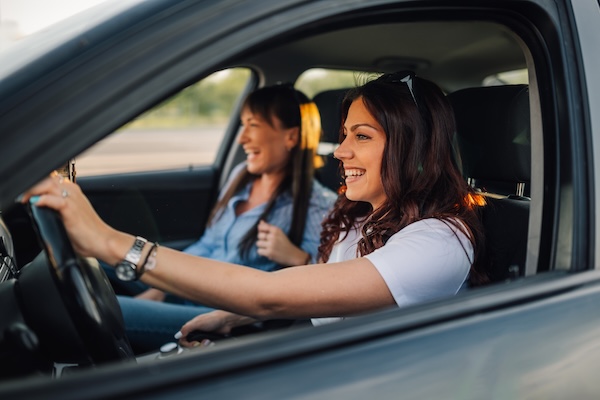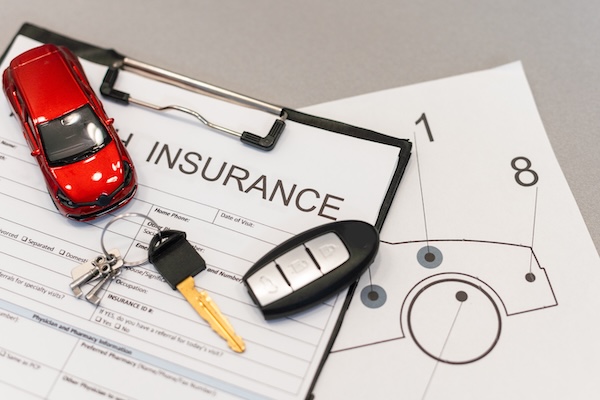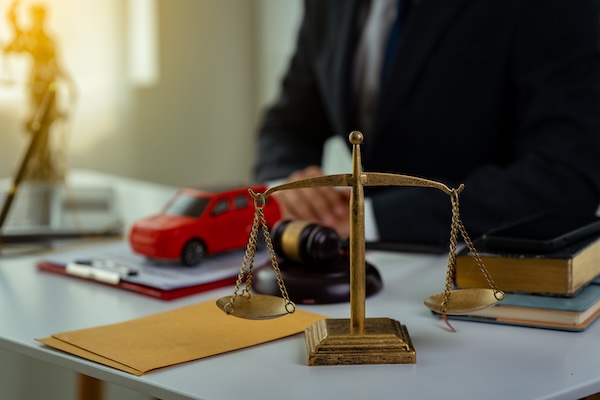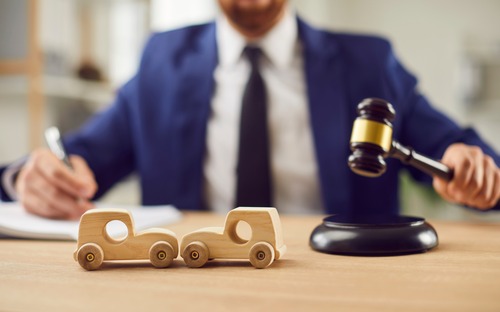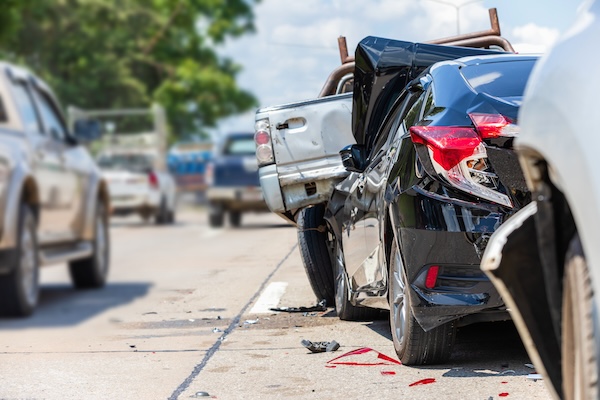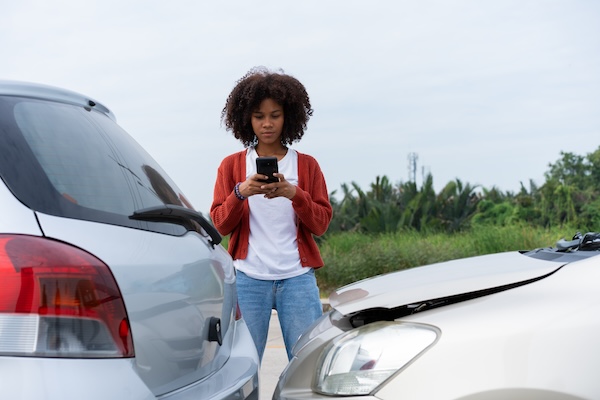Car accidents are stressful events that can lead to significant financial and emotional challenges. But what happens if someone else driving my car gets into an accident? Many people allow family members, friends, or others to borrow their vehicles, often without fully understanding the potential implications. In these situations, questions about liability, insurance coverage, and responsibility can quickly become complicated.
Whether it’s a family member with your consent or a friend borrowing your car, the aftermath of a car accident requires understanding how car insurance policies work and what steps to take next. Issues like determining fault, navigating insurance claims, and addressing potential insurance rate increases can feel overwhelming. It’s crucial to know your rights and obligations under your auto insurance policy and Georgia law.
This article breaks down everything you need to know about what happens when someone else driving my car is involved in an accident. We’ll explore how liability insurance applies, when primary coverage or secondary coverage comes into play, and how to protect yourself from financial risks. By the end of this guide, you’ll have a clear understanding of your options and know when to seek help from an experienced attorney to protect your interests.
Understanding Car Insurance and Liability Coverage
Car insurance policies are designed to provide financial protection when accidents happen. But what happens if someone else drives your car? Most car insurance policies follow the car, not the driver. This means your insurance company typically provides primary coverage in accidents involving your car, regardless of who is driving.
Here are some key terms to know:
- Primary Coverage: The car owner’s insurance usually pays first.
- Secondary Coverage: If damages exceed the owner’s policy limits, the driver’s insurance may provide additional coverage.
- Liability Insurance: Covers damages and injuries caused to others.
- Collision Coverage: Covers repairs to your vehicle after an accident.
Who is Responsible for Damages?
Determining who is responsible for damages after an accident involving someone else driving your car depends on several key factors, including permission to use the car and the role of fault in the accident. Understanding how these factors interact can help clarify your liability and the role of your car insurance policy.
Permissive Use vs. Non-Permissive Use
One of the first questions insurers will ask is whether you gave the person driving your car permission to do so. This distinction plays a crucial role in determining whose insurance covers the damages:
- Permissive Use: If you gave the driver explicit or implied permission to use your car (e.g., a family member or friend borrowing it), your auto insurance policy typically applies first. Your liability coverage would be responsible for covering damages to the other party, while your collision coverage may handle repairs to your car.
- Important Note: Permissive use generally assumes the driver has a valid driver’s license. If the driver is unlicensed or excluded from your policy, your insurance may deny the claim.
- Non-Permissive Use: If someone drives your car without your consent—such as a friend taking it without asking or someone stealing it—the responsibility may fall to the driver or their insurance. In cases of theft, liability usually does not extend to you, but you may need to prove the car was used without permission.
- Special Cases: Even if a family member or close friend frequently drives your car, it’s essential to verify they’re listed on your policy as an approved driver. Failing to do so can lead to disputes over coverage if an accident occurs.
At-Fault Driver’s Insurance
Georgia operates under an at-fault insurance system, meaning the person responsible for causing the accident is liable for damages. However, this does not always absolve the vehicle owner (you) from financial responsibility, especially if the driver was using your car.
- If the Driver is At Fault: When the person driving your car is determined to be the at-fault driver, your insurance policy will likely be the primary coverage, even if you were not driving. This includes liability for property damage, medical expenses, and personal injury claims filed by the other party.
- If damages exceed your policy limits, the driver’s insurance may step in to provide secondary coverage.
- If the driver has no insurance or inadequate coverage, you may face out-of-pocket expenses, especially if your policy lacks sufficient limits or additional coverages like uninsured motorist protection.
- If the Other Driver is At Fault: In scenarios where the other driver caused the accident, their insurance company is responsible for covering your damages, including vehicle repair costs and medical bills for injuries. However, your collision coverage may initially cover the repairs, with reimbursement sought from the at-fault party’s insurance.
Complications with Non-Permissive Drivers
If the person driving your car is determined to have taken it without permission, or they were using it for unauthorized purposes (e.g., ridesharing without proper coverage), liability becomes more complicated:
- Your insurer may deny coverage, leaving the driver or their insurer responsible for all damages.
- If the driver does not have their own insurance, you may need to pursue legal action against them to recover your costs.
Key Considerations
- Insurance Policy Exclusions: Some policies explicitly exclude certain drivers, even if you gave permission. For example, if your policy excludes high-risk drivers, coverage may not apply to them.
- Commercial Use: If your car was being used for commercial purposes (e.g., ridesharing, deliveries), your personal auto insurance may not cover the accident unless you have a commercial or rideshare endorsement.
By understanding these factors, you can better navigate the complexities of determining responsibility and minimize the financial impact of accidents involving other drivers in your car.
Scenarios: What Happens in Different Situations?
- A Family Member Drives Your Car
If a family member drives your car and gets into an accident, your auto insurance policy likely covers the damages. However, this could increase your insurance rates. - A Friend Borrows Your Car
Your insurance applies first. If their friend’s insurance policy has higher liability limits, it may cover excess damages. - A Non-Permissive Driver
If someone drives your car without your consent, their auto insurance company is usually responsible. You may need to prove lack of permission. - A Commercial Driver or Rideshare Use
Personal car insurance may not cover accidents during commercial use (e.g., rideshare services). Verify coverage with your insurance provider.
Steps to Take After an Accident Occurs
When someone else is driving your car and gets into an accident, acting quickly and effectively is crucial to protect yourself from unnecessary liability and financial repercussions. Here’s a detailed breakdown of the steps you should take immediately:
1. Ensure Safety First
Your top priority after any accident is safety. Ensure that everyone involved is safe, and if there are injuries, call 911 immediately for medical assistance. If the vehicles are drivable and it is safe to do so, move them to the side of the road to avoid further accidents. Turn on hazard lights and use warning triangles or flares to alert other drivers. Remember, prioritizing safety sets the foundation for resolving the situation effectively.
2. File a Police Report
Regardless of the accident’s severity, it’s important to contact law enforcement and file a police report. The responding officer will document the accident details, including statements from all parties involved. This report will serve as an official record, which is essential when filing an insurance claim or resolving liability disputes. Be honest and provide accurate information to the police, but avoid admitting fault, as liability is typically determined later.
3. Contact Your Insurance Company
Notify your car insurance company as soon as possible after the accident. Provide all relevant details, including who was driving your car, the circumstances of the accident, and any information about the other parties involved. If the person driving your car had your permission, mention this clearly, as it affects how your insurance coverage applies. Keep in mind that delays in reporting the accident could complicate your claim or lead to denial of coverage.
4. Gather Evidence
Documenting the scene thoroughly is critical for supporting your insurance claim and protecting your rights. Here’s what to collect:
- Photos of all vehicles involved, showing damage and license plates
- Wide-angle shots of the accident scene, including road conditions, traffic signs, and skid marks
- Contact and insurance information for the other driver(s)
- Witness statements and their contact information, if possible
- Details about the person driving your car, including their license and insurance
This evidence will be invaluable in proving liability, assessing damages, and addressing potential disputes.
5. Seek Legal Advice
If disputes arise over who is responsible for the damages or whether the driver had permission to use your car, it’s wise to consult an experienced car accident attorney. An attorney can review the details of the accident, communicate with insurance providers, and represent your interests if legal action becomes necessary. They can also help you understand the implications of your auto insurance policy, including any exclusions or limitations that may apply.
Why These Steps Matter
Each step you take after an accident helps ensure that your rights are protected and that your insurance claim is processed smoothly. By acting quickly and documenting everything thoroughly, you can reduce the risk of financial loss, mitigate potential increases to your insurance premiums, and prepare for any legal challenges that may arise. Following these steps gives you the best chance of resolving the situation effectively and minimizing its impact on your life.
In Georgia, car insurance laws emphasize an at-fault system. If the at-fault driver is someone driving your car, your car insurance policy may cover the damages. Understanding policy limits and state laws is crucial for ensuring adequate protection.
How to Protect Yourself
- Know Your Insurance Policy: Review your auto insurance policy for exclusions or coverage limitations.
- Define Driver Permissions: Specify who can drive your car to avoid misunderstandings.
- Carry Car Insurance with Adequate Coverage: Ensure you have collision coverage and personal injury protection for comprehensive protection.
- Update Your Insurance: Inform your insurance company if you regularly let others drive your car.
How Atlanta Accident Lawyers Can Help With Accidents Involving Someone Else Driving My Car
Navigating liability and insurance coverage after an accident involving someone else driving your car can be overwhelming. At Atlanta Accident Lawyers, our experienced attorneys simplify the process and advocate for your best interests. Here’s how we can assist:
- Investigate the Accident: We gather evidence, review the police report, and assess insurance coverage to determine liability and protect you from undue responsibility.
- Negotiate with Insurance Providers: Our team works with your insurance company and any involved parties to ensure fair compensation for medical expenses, vehicle damage, and other losses.
- Pursue Compensation: We fight for the maximum reimbursement for your damages, including medical bills, lost wages, and repairs to your car.
Let our experience guide you through this challenging process and ensure your rights are fully protected.
Free Consultation for Car Accidents
If someone else was driving your car and an accident occurred, don’t navigate the complexities of liability alone. Contact Atlanta Accident Lawyers for a free consultation to discuss your rights, insurance coverage, and legal options. Our team will ensure you’re protected against rising insurance premiums and other financial burdens.
By understanding how your car insurance applies in these scenarios, you can be better prepared to handle accidents involving other drivers in your car. Reach out to Atlanta Accident Lawyers for expert guidance today!
Call us today at 864-444-2062 for expert guidance!

